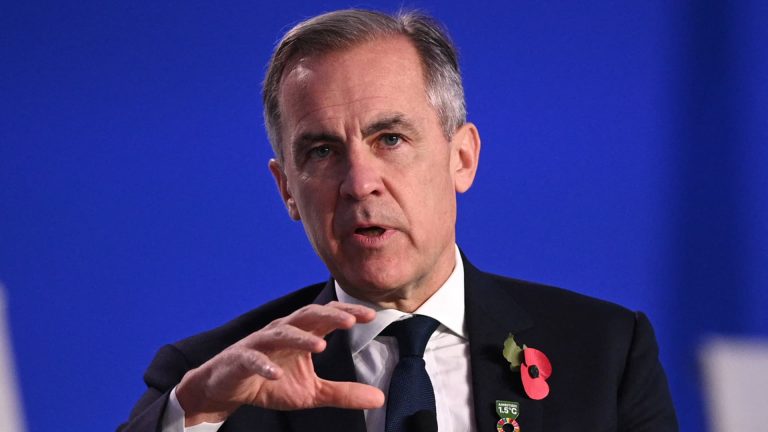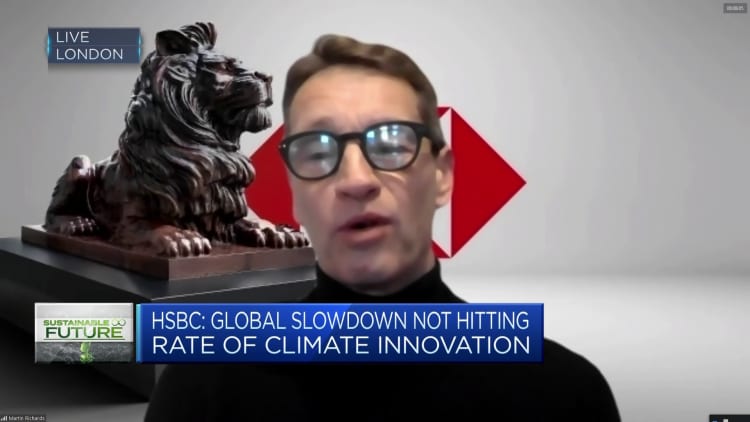
[ad_1]
Mark Carney, former governor of the Bank of England, is now the UN special envoy for climate action and finance.
DANIEL LEAL-OLIVAS | AFP | Getty Images
A group of venture capital firms including Tiger Global and Union Square Ventures on Tuesday set up an alliance aimed at making private tech investing more climate-friendly.
Called the Venture Climate Alliance (VCA), the coalition of more than 20 climate tech and generalist funds seeks to get the VC industry to increase its commitments to climate tech, a branch of technology devoted to finding solutions to the climate crisis.
The alliance lays out guidance that its VC members and their portfolio companies must follow to ensure they meet the requirements to achieve net-zero emissions by 2050.
According to a statement, the VCA’s stated aim is to “ensure that methodology and metrics are at the heart of how we determine what is a good climate investment, and what investment will have the greatest positive effect on the mission to build tech for a regenerative world.”
Portfolio companies are given guidance on how they should decarbonize their operations, such as using emission-free data centers, deploying less energy-intensive software in their tech stack, or rebuilding supply chains around low-carbon alternatives, the statement said.
Other funds signed up to the VCA include climate VCs World Fund, 2150, and Prelude Venture. Collectively, the investment firms involved manage a combined $62.3 billion in assets, according to Crunchbase figures.
Generalist VC firms will need to make routine assessments of their carbon footprint, align their early-stage startup bets with net-zero goals. For climate tech-specific investments, VC firms signed up to the alliance will have to ensure the technology they’re investing in has the potential to save at least 100 megatons of carbon dioxide emissions.
It is not the first initiative to bring climate’s role in startup investing to the forefront. Leaders for Climate Action launched in 2020 with specific clauses added to deal term sheets guiding how startup firms should make their operations more climate-friendly.
The VCA takes such initiatives a step further with the blessing of the United Nations. The U.N. approved the VCA as part of its Race to Zero campaign aimed at mobilizing climate action. The alliance will fall under the Glasgow Financial Alliance for Net Zero (GFANZ), a group formed during the COP26 climate conference.
Mark Carney, the former Bank of England governor and currently co-chair of the GFANZ, said investing in climate solutions was “a critical, foundational pillar of a comprehensive, economy-wide transition to net zero, and one of the four financing strategies in the GFANZ net zero transition plan framework.”

“In keeping with our industry-led approach to date, we welcome the launch of the Venture Climate Alliance as a new sector-specific alliance under GFANZ, and applaud efforts by venture investors to establish workable and high-integrity standards for tracking the contributions of early-stage innovations in the transition to net zero,” Carney said in a statement Tuesday.
The VCA aims to amplify efforts by tech startups and their venture backers to combat the climate crisis with new technologies. Technologists are working on a multitude of solutions ranging from carbon capture — the process of capturing and removing carbon dioxide from the air — to battery electric vehicles to tackle climate change.
While climate tech has proven to be a fast-growing area of tech, it still fails to attract the mammoth sums other sectors such as fintech and crypto have achieved. In 2022, fintech companies attracted $79 billion in venture funding, according to data from Dealroom. That was down 38% from 2021. Still, it eclipsed the $50 billion raised by the climate tech sector, which itself saw funding drop 10% in 2022.
Valuations in the climate tech space have also fallen. In 2022, the combined enterprise value of global climate tech startups dropped by 30% to $1.6 trillion, according to Dealroom data.
“The launch of the VCA is no coincidence. If you look at the last year, many generalist funds have learned that some bubbles burst in the fintech space, in the cryptocurrency space, in the e-commerce space,” Danijel Visevic, founder of World Fund, told CNBC.
“I would say everything that is not solving big problems got into big trouble last year, because then suddenly it became obvious that there were valuations across the market that were not backed by the problem those startups and technologies address.”
VC investment as a whole has slumped dramatically in the past year as investors have soured on technology, a sector known for its focus on cash-intensive, rapid growth. The collapse of Silicon Valley Bank, a critical player in lending to climate ventures and other startups, in March was a major blow to the sector.
“Macro conditions more broadly have likely had a bigger impact on the industry than SVB; at the moment we are seeing what looks like more of a correction in valuations than a downturn or an outright intractable market environment,” Alexandra Harbour, founder and chair of the VCA and a principal at Prelude Ventures, told CNBC.
“The burden of proof on teams out raising at 2020 or 2021 valuations can be high, but it’s mostly dependent on their performance over the past several quarters and whether they were able to hit critical milestones.”
[ad_2]
Source link